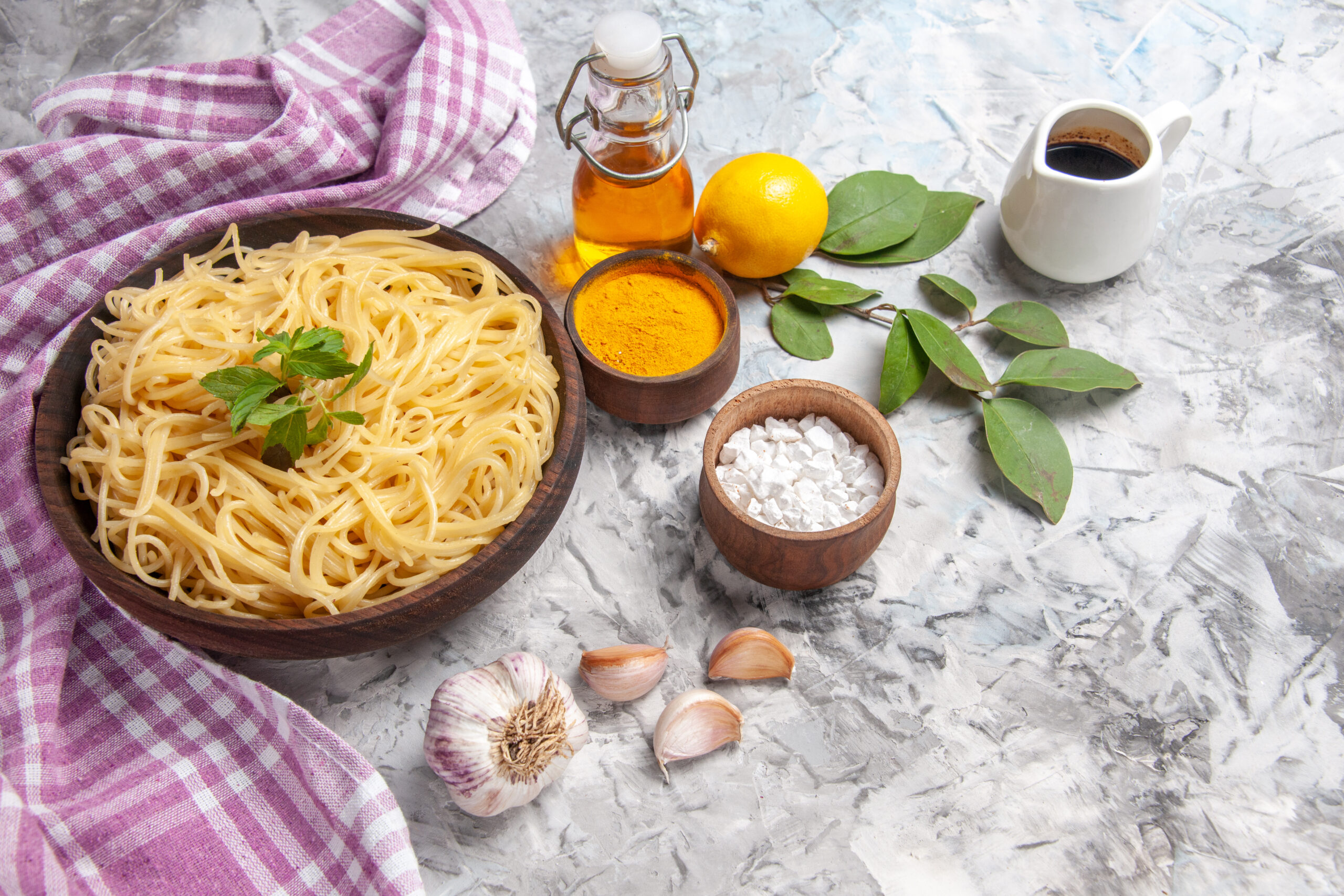Some of the links on this page are affiliate links, which means that Buzzy Kitchen earns commission from purchases made – at absolutely no extra cost to you. Thank you so much for supporting Buzzy Kitchen!
If you’re like me and make enough pasta to feed pretty much the entire British Army, you might be wondering what you can do with all of the leftovers you seem to have accumulated. Can you freeze cooked pasta? Is it better in the fridge or freezer? How long will it last?
I’m going deep into the world of pasta to answer your most pressing pasta questions…
Can You Freeze Cooked Pasta Without Sauce?
Yes, you can freeze cooked pasta without sauce, also known as ‘dry’ pasta.
It is best and perhaps easiest to transfer your cooled cooked pasta into airtight freezer or food bags, such as Ziplock bags, with an individual portion in each bag. In doing that, you are preventing leftover wastage. You can simply take out an individual portion of pasta, reheat it, then add a portion of sauce, meat, and whatever else you’re adding to your pasta dish.
If you freeze all of your leftover cooked pasta without sauce in one go, you’ll end up throwing the remains of the leftovers away if you get them out, reheat them, and only eat part of them.
When you’ve transferred your pasta to freezer or food bags, you should drizzle in a little olive oil, then give the bag a good shake and mix. The olive oil coating (or any other type of oil, but olive oil is best) stops the pasta from sticking together.
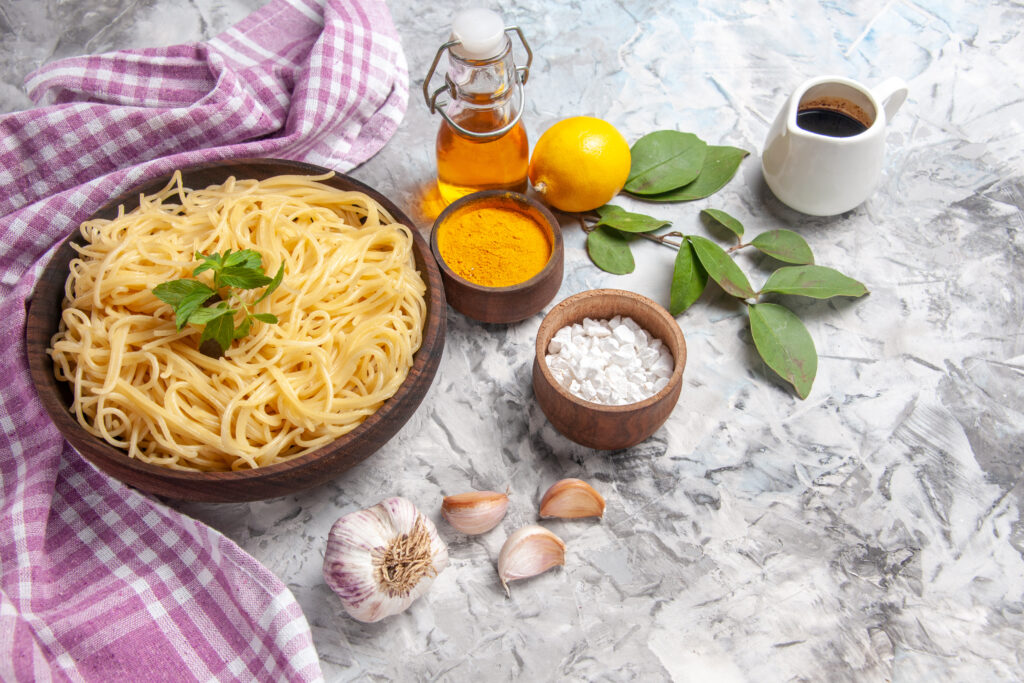
Food plate photo created by KamranAydinov – www.freepik.com
When you’ve shaken the bag and all of the pasta pieces are coated in olive oil, it’s time to press the air out, then seal them up.
Before you transfer your bags of pasta to the freezer, write the date of freezing on them. You will want to know how long they have been in your freezer so you know when to eat them, or when to dispose of them.
Even with freezing, cooked pasta doesn’t last indefinitely. (Sorry!)
Can You Freeze Cooked Pasta With Sauce?
You can freeze cooked pasta with sauce, in the same way you would freeze cooked pasta without sauce.
Once again, individual portion sizes are preferable and probably easiest, along with freezer or food bags. You could always use Tupperware-style containers too, though.
Just make sure the container you’re using is safe to put in the freezer. It will also need to be airtight, and you’ll need to write/affix the date of freezing on it.
Can You Freeze Leftover Lasagne?
Yes, you can freeze leftover lasagne.
Once again, freezing leftover lasagne is a similar process to freezing cooked pasta.
You can freeze the entire dish of leftover lasagne, providing the dish is safe to be put in the freezer, and you can affix a lid over the top of it to make it airtight. If you don’t have a lid for the container, you could use cling film and/or foil.
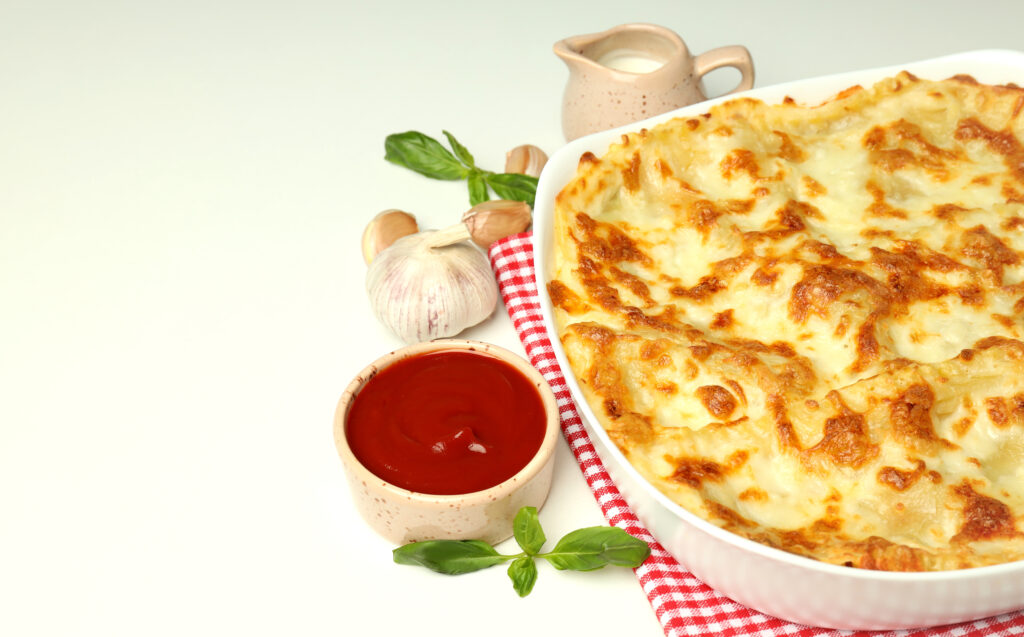
Lasagna photo created by atlascompany – www.freepik.com
You can also freeze individual portions of lasagne. You will first need to wait for the dish to cool down, just as with any pasta dish. When it has cooled to room temperature, transfer individual portions of pasta into containers or freezer bags, affix or write the date of freezing on them, and then pop the lot in the freezer.
Can You Freeze Leftover Bolognese?
Yes, you can freeze leftover bolognese.
And, you might have guessed it… The process is exactly the same as before.
⇢ Airtight container or bag
⇢ Date of freezing on bag
⇢ Individual portions are best
Can You Freeze Cooked Pasta With Cream Sauce?
Yes, but… cooked pasta with cream sauce does not always behave well in the freezer.
One of the only pasta dishes you can’t *easily* cook and then freeze the leftovers, is pasta with a cream-based sauce.
Cream, generally, doesn’t behave well in the freezer, often splitting, curdling, or generally coming out in a much worse shape than when it went in. Cold temperatures destabilise cream and cream-based products, and the thawing and reheating process can make things an even bigger mess.
Some pasta dishes with minimal cream in the sauce can be frozen, but it is generally not recommended to do so. It might look fine in the freezer, but once you take it out and start to reheat it, things could take a rather unpleasant turn for the worst.
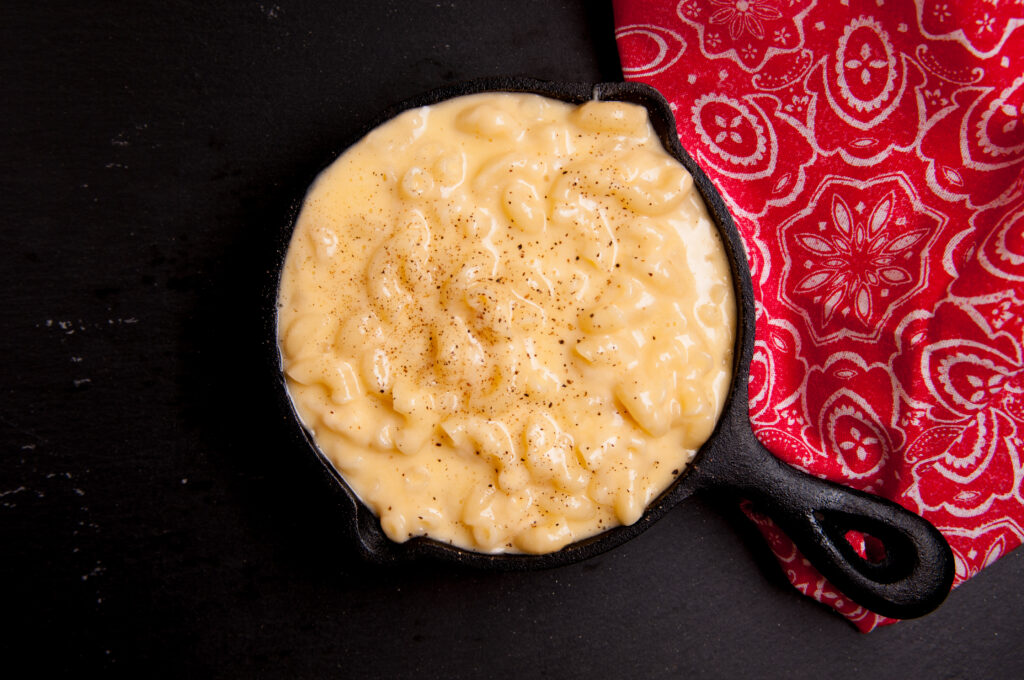
Casserole photo created by wirestock – www.freepik.com
If you do decide to freeze and reheat a creamy pasta dish, make sure you heat it up slowly, and be super cautious about adding extra fluids or fat. They could make the cream in the sauce start to split.
Can you Freeze Cooked Pasta With Vegetables and Sauce?
Yes, you can freeze cooked pasta with vegetables and sauce.
And, just like before, the process is simply to wait for the dish to cool, transfer into bags or containers in individual portion sizes, and write the date of freezing on them before popping them into the freezer.
Can You Freeze Pasta Bakes?
Yes, you can freeze pasta bakes, and you can do so in the same way as lasagne.
Just as with lasagne, it works best to freeze individual portions for less waste, and be cautious about pasta bake sauces that are made with fresh cream.
How Long Can You Keep Leftover Pasta in the Freezer? (Without Sauce)
Cooked pasta can be kept in the freezer and then eaten for up to 2 months.
Lots of factors can shorten or lengthen that time frame, including temperature, the bag or container the leftovers are stored in, and more.
Some food experts believe that up to 3 months is a better suggestion.
How Long Can You Keep Leftover Pasta in Sauce in the Freezer?
You can keep leftover pasta in sauce in the freezer for up to 3 months.
This will vary from sauce to sauce, of course, but for the most part, pasta-in-sauce dishes are safe to eat for up to 3 months from the date they were frozen.
Should You Thaw Frozen Cooked Pasta Before You Reheat It?
It is best not to thaw your frozen cooked pasta before you reheat it.
In fact, this can cause the pasta pieces to stick together a lot more, and it could make the pasta slimy and unpleasant-looking before it has even hit the pan or microwave.
Reheat your frozen cooked pasta from frozen for best results.
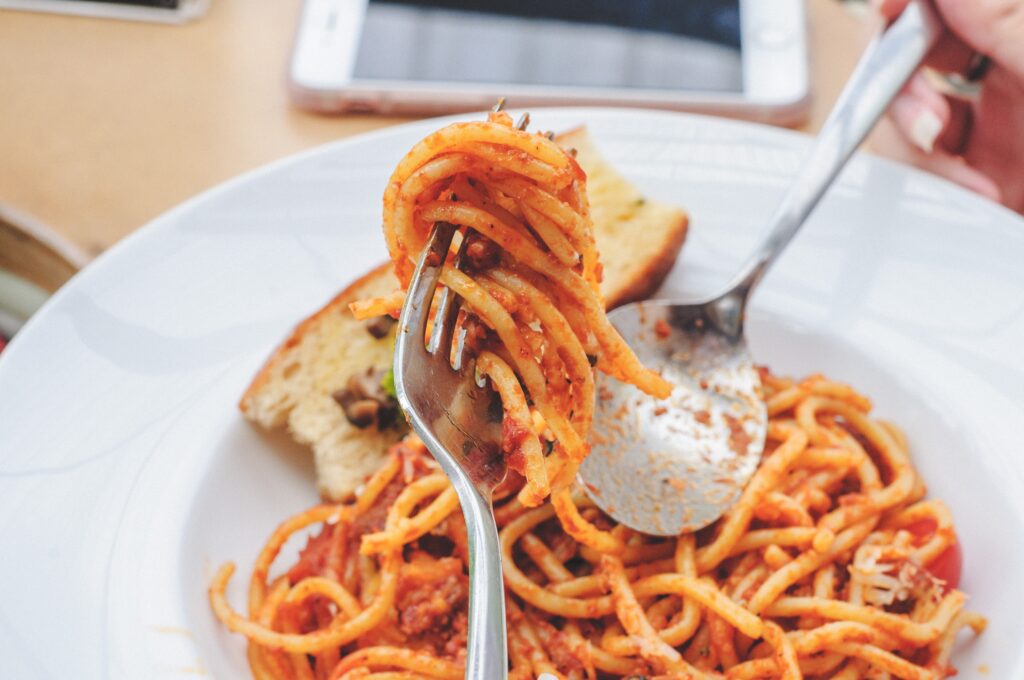
How to Reheat Frozen Cooked Pasta
You have more options than you’d think when it comes to being able to reheat frozen cooked pasta.
Let’s take a look at some of your best (and worst) options…
How to Reheat Frozen Cooked Pasta in the Oven
Yes, you can reheat frozen cooked pasta in the oven – and it doesn’t need to turn out half as dry and crispy as you’d think.
You will first need to preheat the oven, of course: 190°C / 375°F / gas mark 5.
Then, transfer your pasta to an oven-safe dish. You can add a little extra sauce/water/milk to prevent things from turning dry. About halfway through cooking, once things have started to soften up and aren’t so frozen, you can give things a good mix.
Reheat in the oven for 15 to 20 minutes.
About 5 or 10 minutes before the end, take add some cheese to the top of the dish (if desired). This will help to soften up and mask some of the added crunch on top of the pasta that you often get from reheating or cooking it in the oven.
How to Reheat Frozen Cooked Pasta in the Microwave
If you’re looking for the quickest option, the microwave is the fastest way to reheat frozen cooked pasta.
Once again, you’ll want to make sure the pasta is in a microwave-safe dish or container. And, just like reheating your pasta in the oven, you can add some extra sauce/water/milk to help keep things nice and moist. Pasta can dry out quite quickly in both the oven and the microwave.
You will want to reheat the pasta for around 30 seconds to 1 minute at a time, on medium heat. Once the microwave pings, take the pasta out, check how frozen/hot it is, then give it a stir (if you can). Repeat this cycle for as long as it takes to get your frozen pasta thawed out and hot enough to eat.
You will want to cover the top of your pasta dish with cling film or similar. This will prevent the top layers from completely drying out. If you are going to use cling film, poke a couple of holes through the top, to let some of the steam out. And, as always, be careful when taking hot food out of the microwave.
How to Reheat Frozen Cooked Pasta on the Hob
You can literally throw your frozen cooked pasta into a saucepan and reheat it over a medium heat on the hob, but you will want to add a little water to the bottom of the pan. Not only that, just like using the microwave, you will need to stick around and give the pasta dish a stir every now and then. Your pasta will stick and burn, otherwise.
It only takes 5 to 10 minutes for the frozen pasta to thaw out and reheat using the hob method.
Reheating Frozen Cooked Pasta: Warnings
Certain pasta dishes do not behave well during the freezing and/or thawing/reheating process. These are:
- Alfredo pasta (and other fresh cream-based dishes) – this dish will need to be handled with great care to ensure the cream doesn’t separate and completely ruin your meal. Heat slowly, and be very slow and careful when adding extra ingredients, particularly fats and fluids.
- Macaroni cheese – the cheese in this recipe increases the fat content, which can make the pasta dish behave in the same way as cream-based sauces. You should freeze and reheat this dish with care, too.
FAQ
Is It Safe to Freeze Pasta?
Is It Safe to Freeze Pasta?
It is 100% safe to freeze pasta and then reheat-to-eat it within 2 to 3 months.
Can You Freeze Cooked Rigatoni Pasta?
Can You Freeze Cooked Rigatoni Pasta?
Yes, you can free cooked rigatoni pasta. Follow the same instructions as listed for freezing pasta as set out above.
Can You Freeze Cooked Penne Pasta?
Can You Freeze Cooked Penne Pasta?
Yes, you can also freeze cooked penne pasta. Follow the same instructions as listed for freezing pasta as set out above.
Can You Freeze Creamy Chicken Pasta?
Can You Freeze Creamy Chicken Pasta?
Yes, you can freeze creamy chicken pasta – but be cautious when dealing with creamy pasta sauces. They will need to be reheated slowed than pasta sauces without cream.
Is It Safe to Reheat Pasta Twice?
Is It Safe to Reheat Pasta Twice?
No, it is not safe to reheat your pasta dish twice. If you have cooked it, frozen it, reheated it, eaten it, and then still have some leftovers, it would be best to dispose of them.
When food is reheated twice, you run the risk of ingesting high levels of bacteria that could potentially make you sick. It is not recommended to reheat most foods twice, and that is definitely the case with pasta dishes.
